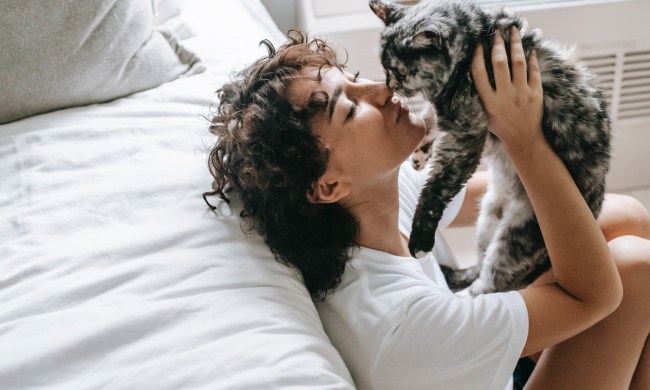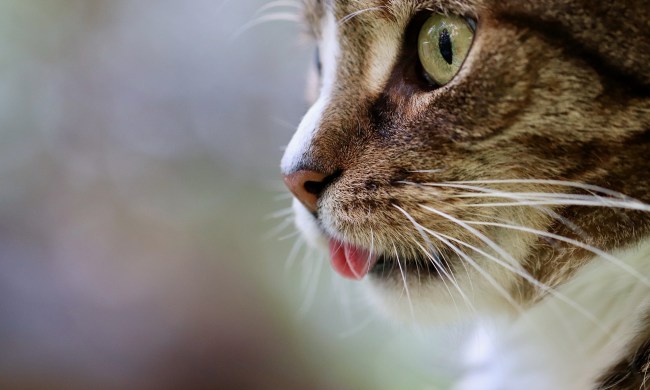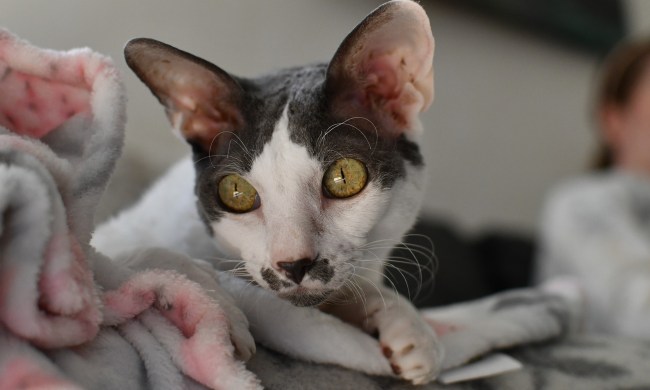While you might expect to see a dog chase his tail in play, this behavior is a little less common in cats. Still, plenty of cats do chase their tails, and there are many potential reasons behind this behavior. In some cases, chasing their tail is completely goofy and harmless — plus, it can be fun for you to watch. But in other cases, a cat might be chasing their tail out of discomfort. So why do cats chase their tails? Read on to find out.
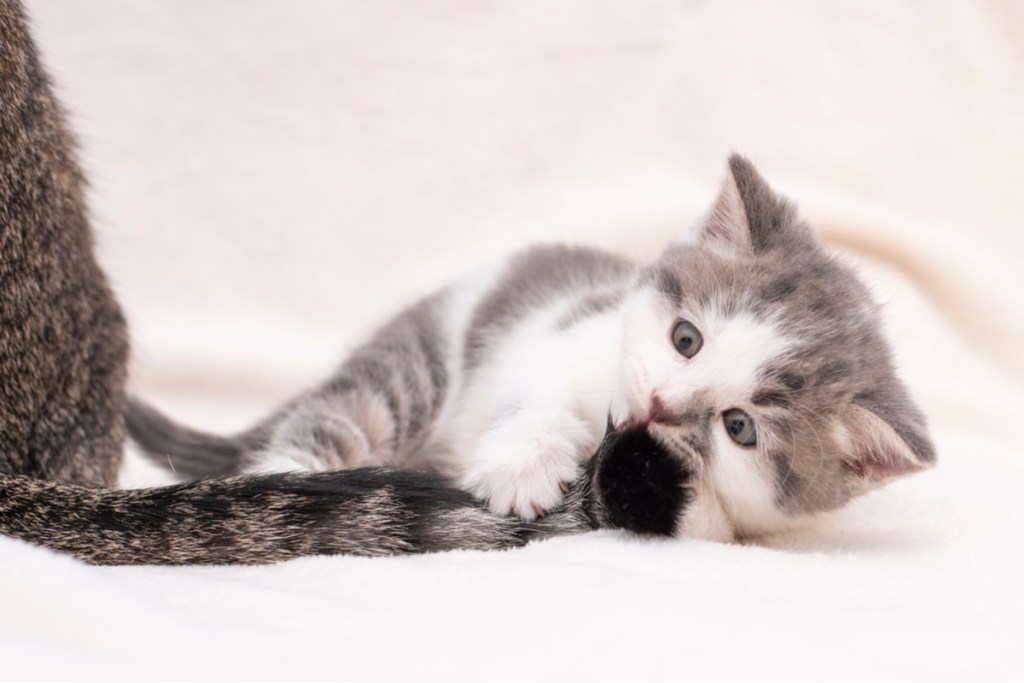
Why do cats chase their tails?
Whether a cat is chasing his tail for a harmless reason or something more serious, it’s important to know the difference. Here are some of the most common reasons behind this peculiar behavior.
It’s entertaining
Some cats chase their tail for entertainment. If your cat tends to chase his tail only when he’s wound up and running around the house, it might just be part of a game for him. Cats can be so silly sometimes.
Your cat has fleas
Fleabites can cause your cat’s tail to itch. Look for signs that your cat has fleas, like the presence of flea dirt (which resembles coffee grounds) under his coat. Try using a flea comb along your cat’s tail. Comb the area repeatedly, then pull the hair out of the comb directly onto a white piece of paper. You may be able to see flea dirt or even fleas. To get rid of fleas, you’ll need to treat your cat and your house. Your veterinarian can recommend products that get rid of the fleas on your cat. Washing your cat’s bedding, thoroughly vacuuming your carpets, and cleaning any furniture where your cat spends time are important to breaking the flea life cycle and bringing an end to the infestation.
Allergies can cause itching, too
Like fleas, allergies also can make your cat’s tail itch. Food allergies or allergies to medications can leave your cat’s skin flaky, dry, and irritated. If you suspect your cat has allergies, your veterinarian can test him to determine what he’s allergic to. If you think a food ingredient might be to blame, an elimination diet can help pinpoint the allergen. Once you know what your cat is allergic to, you can take steps to avoid it and keep your cat more comfortable.
Your cat has stud tail
Stud tail is a gland infection that sometimes occurs in male cats. Your cat has many glands at the base of his tail that can feel irritated and painful if they get infected. You might also notice a waxy buildup at the base of your cat’s tail, indicating that these glands are overproducing oils and might be infected. Your cat will need veterinary treatment to address the infection.
Infected tail
While stud tail often affects male cats, both males and females can be affected by plenty of other infections in their tail area. Anal glands can become infected, and a scrape or injury to your cat’s tail is another potential source of infection. Infections tend to itch, causing your cat to chase his tail. Your vet can help determine whether an infection is present and may prescribe antibiotics to help treat it.
Hyperesthesia syndrome
Some cats are affected by a rare disease called hyperesthesia syndrome. These cats have hyperactive nerve endings in their tail that create a tingly feeling that can be irritating. Cats may panic when these nerve endings are aggravated, and they may chase their tail wildly for a few minutes before settling down. If you notice this behavior, contact your vet.
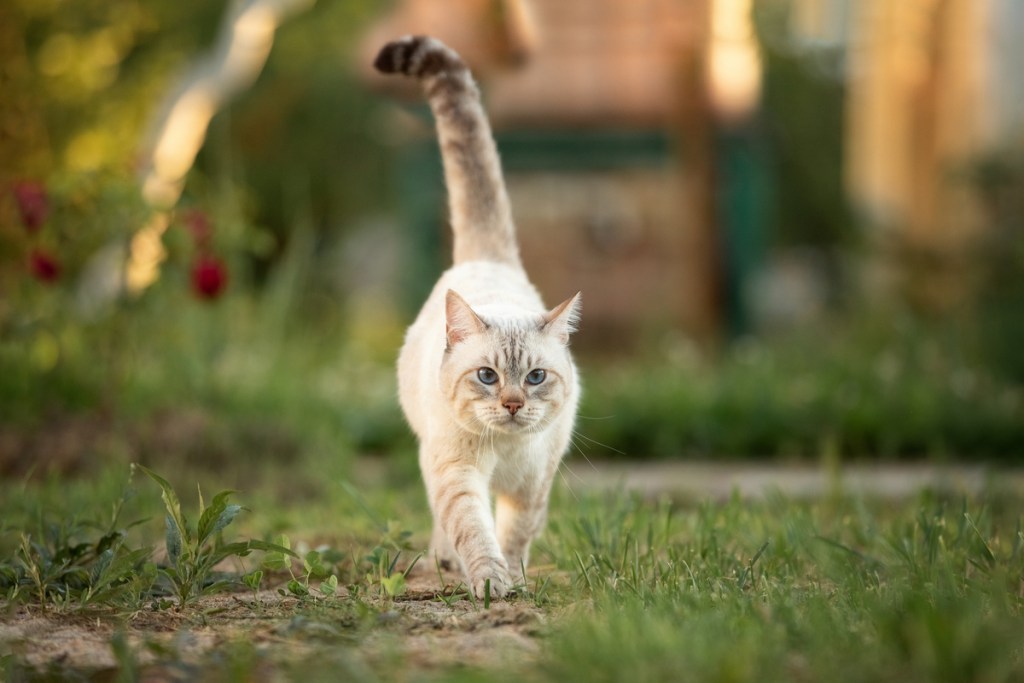
Since so many health issues can make your cat chase his tail because he’s uncomfortable, it’s essential to determine the cause. Watch your cat’s body language as he chases his tail. If he flattens his ears, tenses his body, and bites at his tail angrily, chances are it is irritating him, and this isn’t a game. Your veterinarian can help you narrow down the potential causes and offer solutions to make your cat more comfortable.
